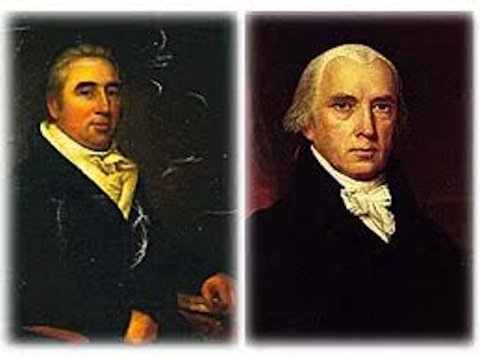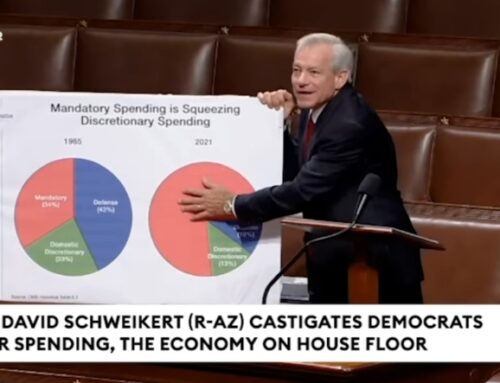“Lex mala, lex nulla.” – St. Thomas Aquinas
(L-Marbury; R-Madison)
Affirmative words are often, in their operation, negative of other objects than those affirmed; and in this case, a negative or exclusive sense must be given to them or they have no operation at all.
It cannot be presumed that any clause in the constitution is intended to be without effect; and therefore such a construction is inadmissible, unless the words require it.
The question, whether an act, repugnant to the constitution, can become the law of the land, is a question deeply interesting to the United States; but, happily, not of an intricacy proportioned to its interest. It seems only necessary to recognize certain principles, supposed to have been long and well established, to decide it.
That the people have an original right to establish, for their future government, such principles as, in their opinion, shall most conduce to their own happiness, is the basis, on which the whole American fabric has been erected. The exercise of this original right is a very great exertion; nor can it, nor ought it to be frequently repeated. The principles, therefore, so established, are deemed fundamental. And as the authority, from which they proceed, is supreme, and can seldom act, they are designed to be permanent.
This original and supreme will organizes the government, and assigns, to different departments, their respective powers. It may either stop here; or establish certain limits not to be transcended by those departments.
The government of the United States is of the latter description. The powers of the legislature are defined, and limited; and that those limits may not be mistaken, or forgotten, the constitution is written. To what purpose are powers limited, and to what purpose is that limitation committed to writing, if these limits may, at any time, be passed by those intended to be restrained? The distinction, between a government with limited and unlimited powers, is abolished, if those limits do not confine the persons on whom they are imposed, and if acts prohibited and acts allowed, are of equal obligation. It is a proposition too plain to be contested, that the constitution controls any legislative act repugnant to it; or, that the legislature may alter the constitution by an ordinary act.
Between these alternatives there is no middle ground. The constitution is either a superior, paramount law, unchangeable by ordinary means, or it is on a level with ordinary legislative acts, and like other acts, is alterable when the legislature shall please to alter it.
If the former part of the alternative be true, then a legislative act contrary to the constitution is not law: if the latter part be true, then written constitutions are absurd attempts, on the part of the people, to limit a power, in its own nature illimitable.
Certainly all those who have framed written constitutions contemplate them as forming the fundamental and paramount law of the nation, and consequently the theory of every such government must be, that an act of the legislature, repugnant to the constitution, is void.
- – Chief Justice John Marshall, 1803 term. Justice Marshall was born in Fauquier County in 1755.







